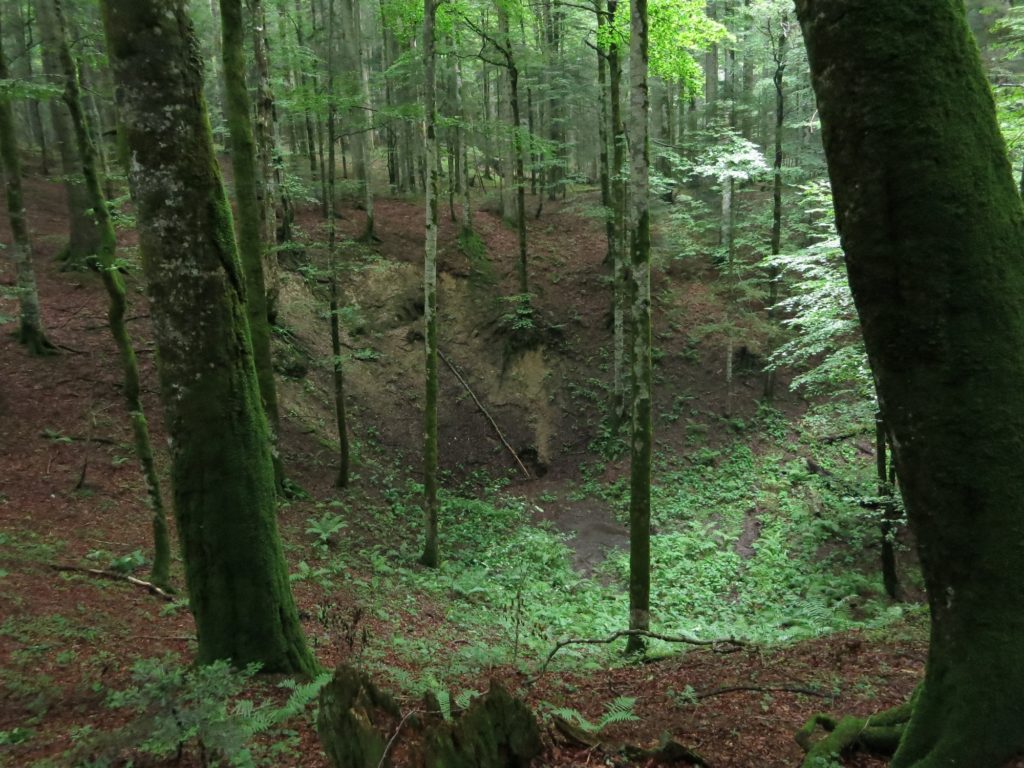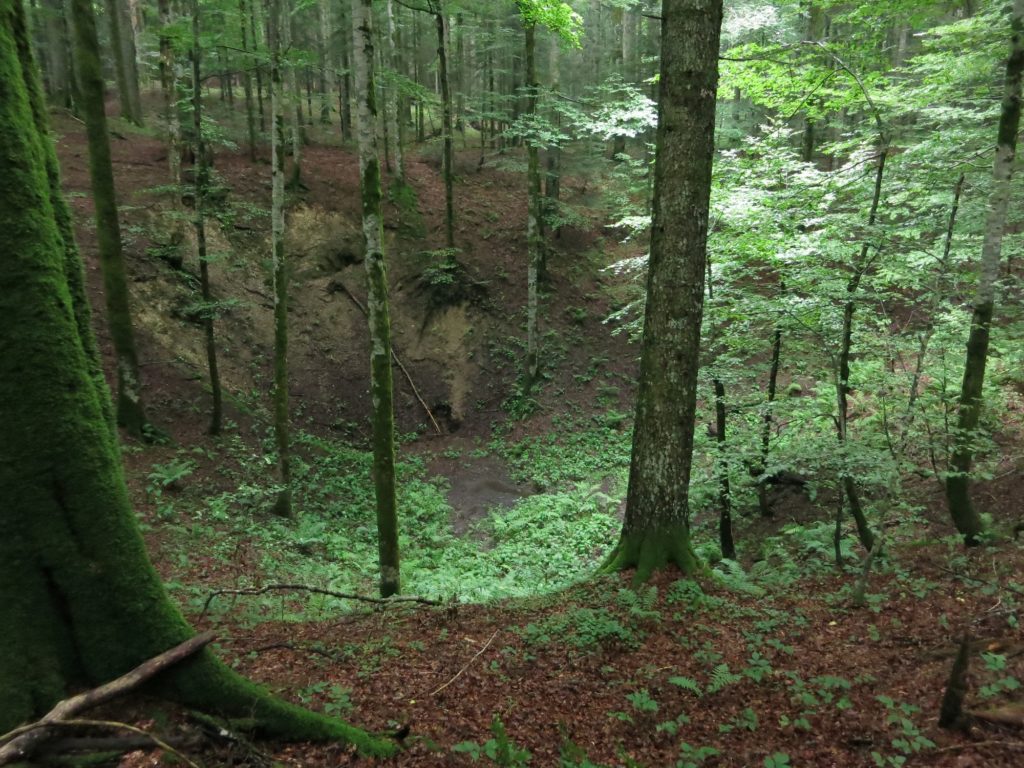The topographic map of the Plitvice Lakes National Park shows a site called the Black Lake, in the area of Čorkova uvala. Since it is located in a forest area with only a few smaller springs and intermittent watercourses, it is clear that this is no “ordinary” lake. Only the long-time residents of the area, long-term employees of the Park and old records about the Plitvice Lakes can testify to the existence of a lake named the Black Lake.
People’s theories on an underground change of course and a distant reach of the water from the Plitvice Lakes.
As already mentioned, water flows towards the Plitvice Lakes visibly and invisibly, which is also the case when it is flowing away. There are several spring by the side of the Lakes, that flow into them, as well as next to the Plitvice stream, but these springs dry up in the summer, which led to the Black Lake changing its course (underground) towards the lake Kozjak from Čorkova uvala.
D. Franić, Plitvička jezera i njihova okolica (“Plitvice Lakes and Their Surroundings” in English), 1910
The water sinks into the ground like so only occasionally, and is joined by the water from the nearby permanent, but very small karst source called Antino vrelce. By tracing the water in 1984, Dešković and his co-workers proved that the swallow hole of the Black Lake (829 m above sea level) was directly connected to the source of the Plitvice stream (610 m above sea level). Still, few have had the chance to see it as a lake. Only in short periods of extremely high water, when large amounts of snow melt quickly or during heavy rainfall, does the swallow hole fill up with water enough to form a lake. Unlike others, this swallow hole fills up with water due to partially watertight sediments at the bottom. Water stays in the swallow hole for a short time, depending on the hydrological conditions, and usually sinks already after a couple of days, when the swallow hole takes on its former, usual appearance. Due to extreme hydrological conditions, this May we had the rare chance of seeing the Black Lake in all its glory.
Read other interesting stories from the Plitvice Lakes National Park









